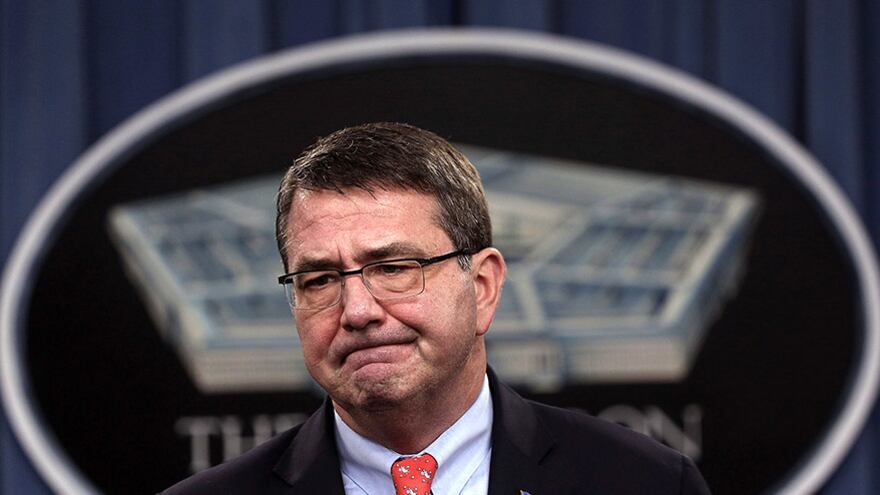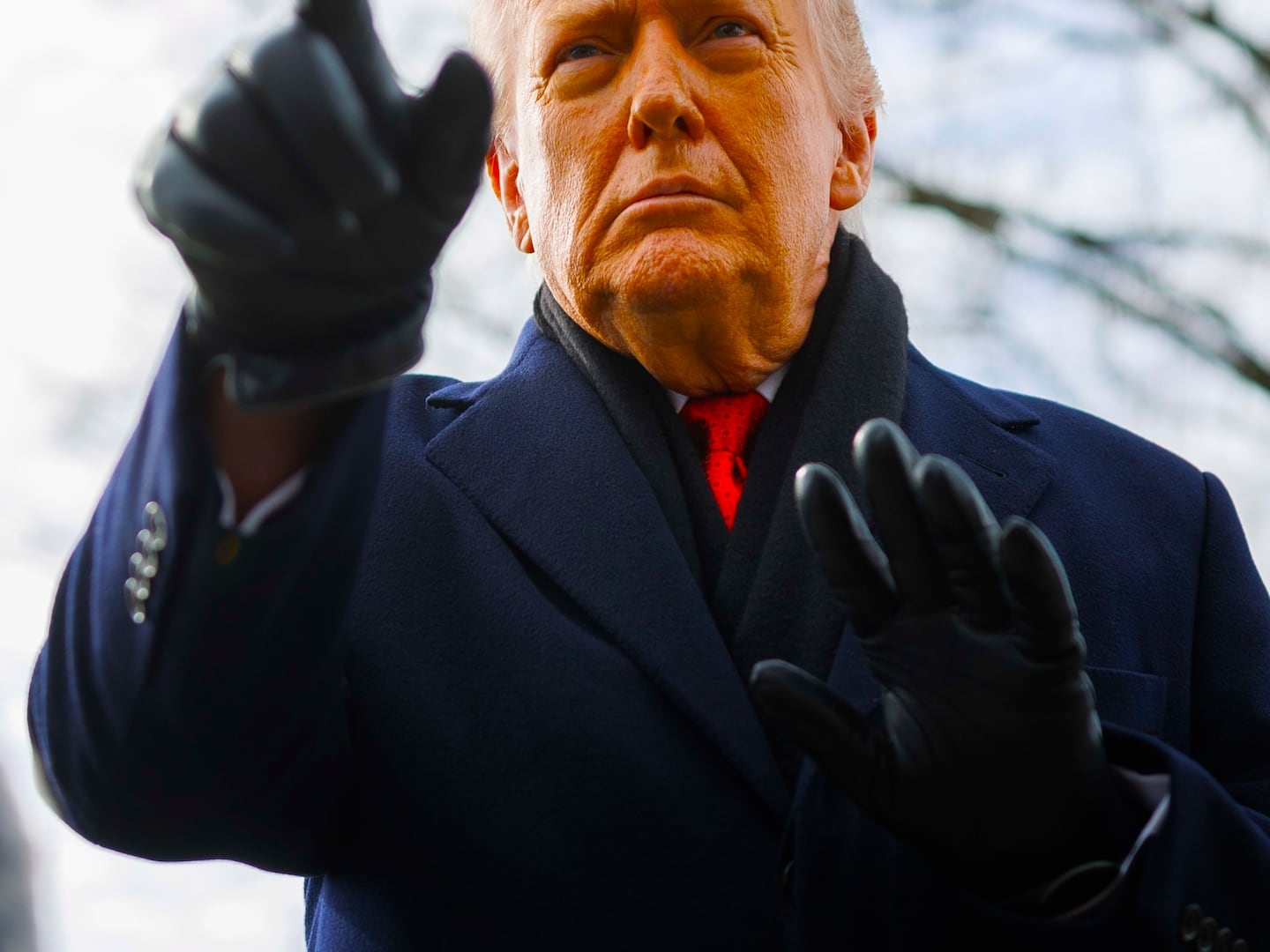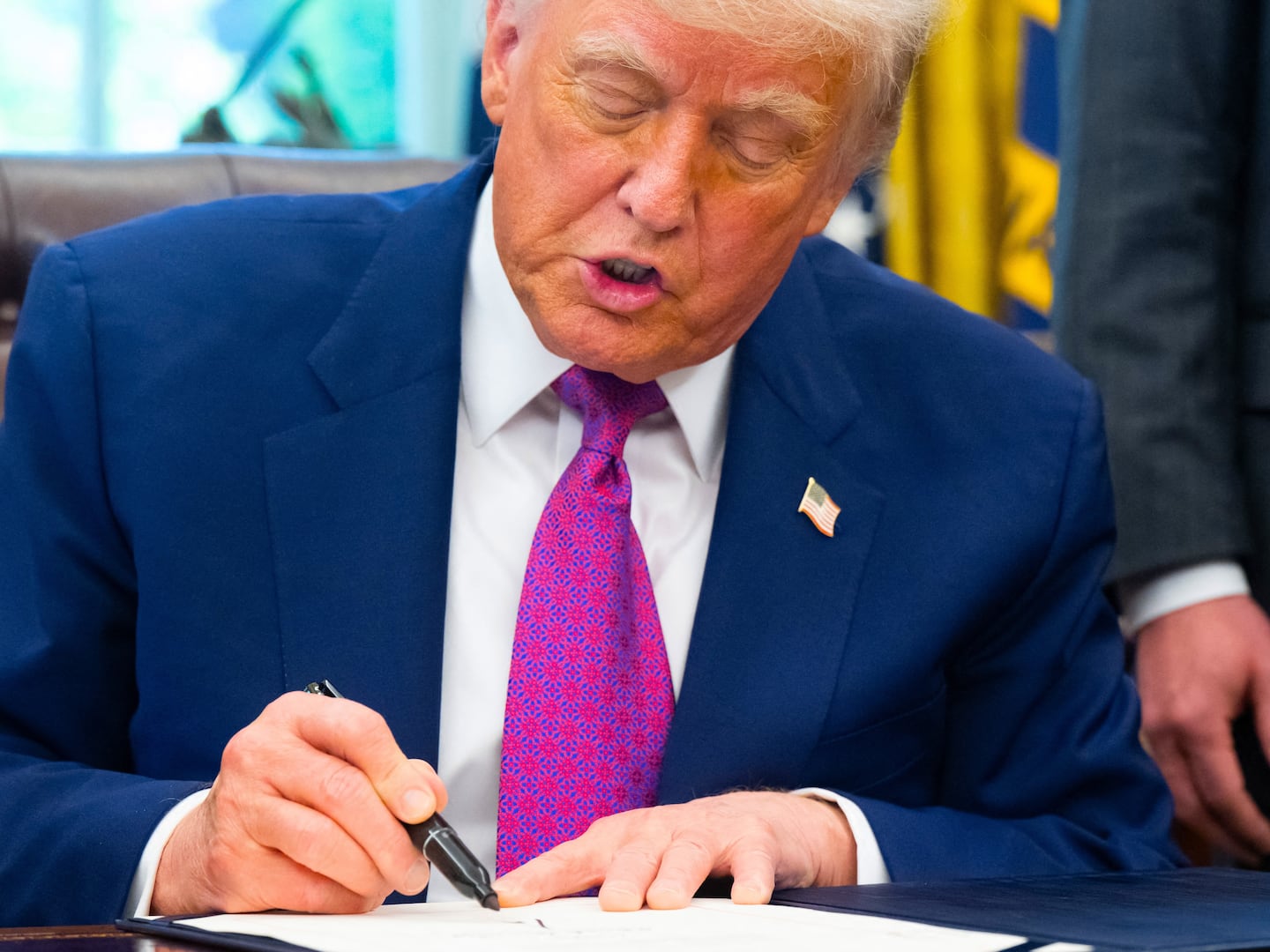Call it the revenge of the wonk. After being passed over for Defense Secretary last year while serving as the Pentagon’s No. 2, Ashton Carter, a widely admired manager noted for his knack for wrangling budgets and weapons contracts, left government. It seemed as if he’d never serve in the top slot.
But now, with Carter’s former boss, Chuck Hagel, having crashed and burned, Obama is widely believed to be ready to nominate the 60-year-old former physicist as the nation’s 25th Defense Secretary. That's despite the fact that Obama appeared to favor another candidate, Homeland Security Secretary Jeh Johnson, who yesterday asked to be removed from the shortlist, the latest candidate to preemptively decline a job few in Washington seem to want.
But for Carter, this is a capstone to a career spent in the decidedly unsexy corridors of Pentagon power. He served as deputy secretary of defense from 2011 to 2013, essentially the department’s chief operating officer. But prior to that, he was the under secretary for acquisition, technology and logistics, and oversaw the Pentagon’s efforts to get more efficient, and smarter at amassing its arsenal of weapons. Under Carter’s green eyeshades, the department axed huge weapons programs, including the Army’s $200 billion Future Combat System--a suite of networked trucks and tanks--and he helped to bring costs under control for the Joint Strike Fighter program, the biggest Pentagon weapons system in history.
Part of that was a new rule he instituted that required defense contractors to dip into their profits if their projects went over-budget. “When we get to $120″ on a $100 item, Carter said in 2010, “I’m out of Schlitz and it’s all yours.”
That’s tough managerial talk. And while the issues on Carter’s plate now would be of a decidedly more global and political nature--the rise of ISIS, a nationalist Russia, the spread of Ebola--those who know Carter say his bureaucratic smarts and tenacity will serve him well.
"Whether anyone can ever manage a $650 billion enterprise fighting five low level wars is another story, but he's about as qualified as anyone can get," said Anthony Cordesman of the Center for Strategic and International Studies in Washington. Cordesman noted that Carter gets along well with Sen. John McCain, who's about to take take over the Senate Armed Services Committee.
Carter has also been a fixture on boards and expert panels, in think tanks and at universities. He's about as apolitical as they come in Washington power circles. Yet his policy advice has, at time, been a bit out of tune. In 2006, he called on the U.S. to preemptively attack North Korea when it was on the verge of test-firing a long-range ballistic missile. That advice, thankfully, was ignored. The missile fell back to earth after just 40 seconds in the air.
"Ash Carter is more of a technocrat… he's shown over the years that he have strong views, but they're the kind of pragmatic views that are budgetary and policy-oriented," Cordesman said. "As important as policy issues are day to day, making the department work year to year is at least as important."
Carter also doesn't have a long list of critics. But his relations with his former Pentagon boss weren’t always so smooth. As Hagel’s #2, Carter did get to sit in on high-level "principals meetings" at the White House, even though those confabs are usually meant for cabinet secretaries only. But as Foreign Policy reported last year, some in Hagel’s camp complained that Carter got too big for his britches, talking as if he ran the Pentagon, instead of seriving as Hagel’s deputy.
Still, Carter faces a relatively straightforward confirmation process -- or, as least as close to straightforward as one can get in today’s hyper-politicized Washington. Johnson, who had previously served as the Pentagon's general counsel, risked incurring the wrath of Republican senators opposed to Obama's recent executive action on immigration, which Johnson's department is implementing.
Carter is drama free. Another reason why an embattled president facing withering criticism for his foreign policy, including from members of his own party, may be inclined towards a steady hand and an uncontroversial pick.







